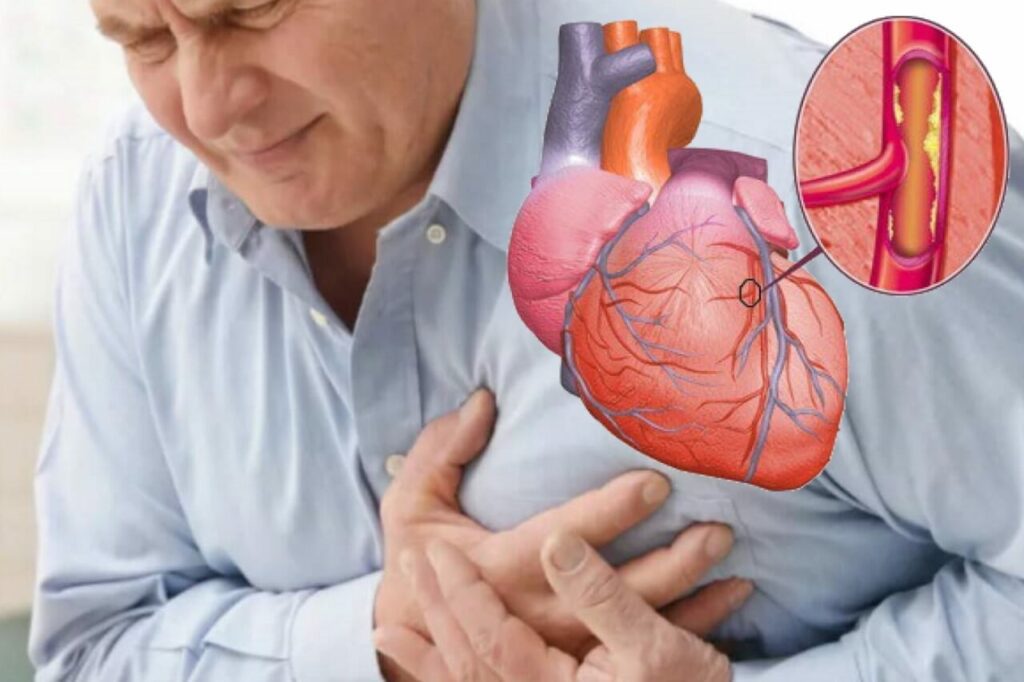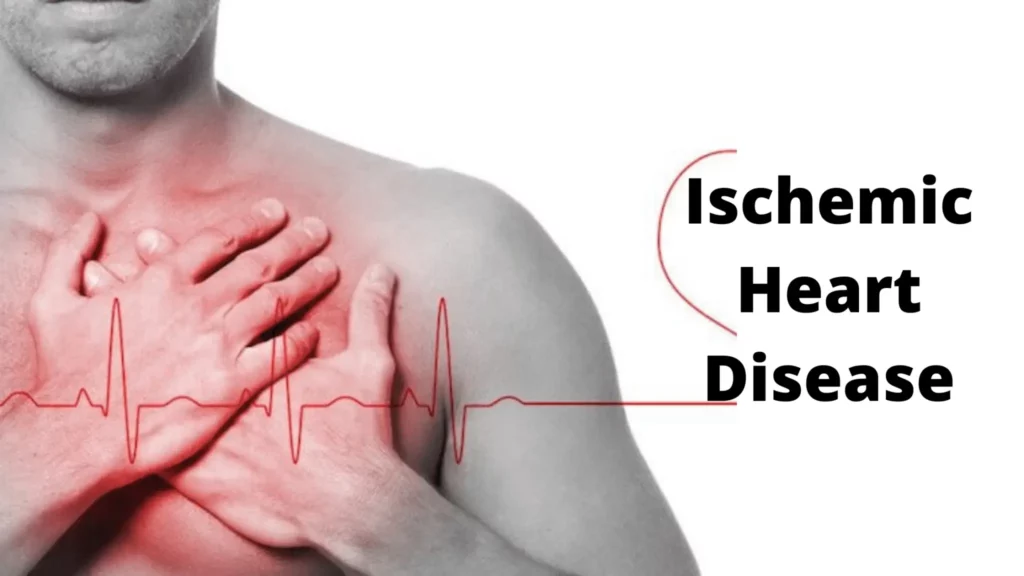Ischemic heart disease, also known as coronary artery disease, is a condition in which the blood vessels that supply blood to the heart muscle become narrowed or blocked. This can lead to reduced blood flow to the heart muscle, which can cause symptoms such as chest pain (angina) and shortness of breath and can increase the risk of a heart attack. Ischemic heart disease is often caused by the accumulation of plaque in the coronary arteries, which is made up of cholesterol, fatty substances, and other substances found in the blood.
Common & Serious Symptoms of Ischemic Heart Disease
You may have ischemic heart disease symptoms daily, occasionally, or not at all. When symptoms occur, common symptoms include chest pain, chest pressure, or shortness of breath that:
- May feel as if pain, stress, heaviness, or tightness starting in the chest is spreading to the arms, back, or other areas
- May feel like gas or indigestion
- Repeatedly occur in similar episodes
- Occur when the heart must work harder, usually during physical exertion
- Subside with rest or medicine
- Usually last a short time, about 5 minutes or less
Ischemic heart disease can cause a heart attack. Seek immediate medical care (call 911) for any of these serious symptoms, including:
- Chest pain or pressure, typically on the left side of the body, which may radiate to the jaw, neck, shoulder, or arm
- Clammy skin
- Nausea with or without vomiting
- Rapid breathing or shortness of breath
- Dizziness or near fainting

Diagnosis
Ischemic heart disease can be diagnosed using a variety of tests, including a physical exam, blood tests, and imaging tests such as an electrocardiogram (ECG), echocardiogram, and coronary angiography. An ECG records the electrical activity of the heart and can help to identify abnormal heart rhythms, while an echocardiogram uses sound waves to create a detailed image of the heart. Coronary angiography involves injecting a dye into the coronary arteries and taking X-rays to see if there are any blockages or narrowed areas.
Your doctor might advise drugs, surgery, or a combination of the two depending on the seriousness of your disease. Consume a balanced diet low in saturated fat, cholesterol, and sodium to help treat coronary artery disease and reduce your risk of problems. Additionally, you’ll receive advice on how to exercise safely given your condition. Don’t think of lifestyle adjustments as temporary remedies. Instead, resolve to create lasting healthy behaviors.”
Treatment of coronary heart disease
Ischemic heart disease is a type of heart disease that is caused by a reduced supply of blood to the heart muscle. It is a common condition, and it can be treated in a number of ways, including lifestyle changes, medication, and medical procedures.

Lifestyle changes: Making changes to your diet and increasing your level of physical activity can help to improve the symptoms of ischemic heart disease and reduce the risk of further problems. This may include eating a healthy diet that is low in saturated fat and cholesterol, quitting smoking, and getting regular exercise.
Medication: There are a number of medications that can be used to treat ischemic heart disease, including aspirin, blood pressure medications, cholesterol-lowering medications, and medications to improve blood flow to the heart.
Medical procedures: In some cases, medical procedures may be necessary to treat ischemic heart disease. This may include procedures such as coronary artery bypass surgery, angioplasty, or stenting. It is important to work with a healthcare provider to determine the best course of treatment for your specific situation.
Angioplasty: This is a procedure in which a balloon catheter is inserted into a blocked coronary artery and inflated to widen the artery and improve blood flow. A stent (a small mesh tube) may also be placed in the artery to help keep it open.
Coronary artery bypass surgery: This is a more invasive procedure that involves taking a healthy blood vessel from another part of the body (such as the leg or chest) and using it to bypass a blocked coronary artery. This can improve blood flow to the heart and reduce the risk of a heart attack.
Note: It is important to note that treatment for ischemic heart disease will depend on the specific needs of the individual patient. Some people may need a combination of lifestyle changes, medication, and medical procedures, while others may only require one or two of these approaches. Your healthcare provider will be able to recommend the best treatment plan for you based on your specific needs and medical history.
Also, read | 8 Benefits of Potato Juice For Your Overall Health- Try It Out Today



